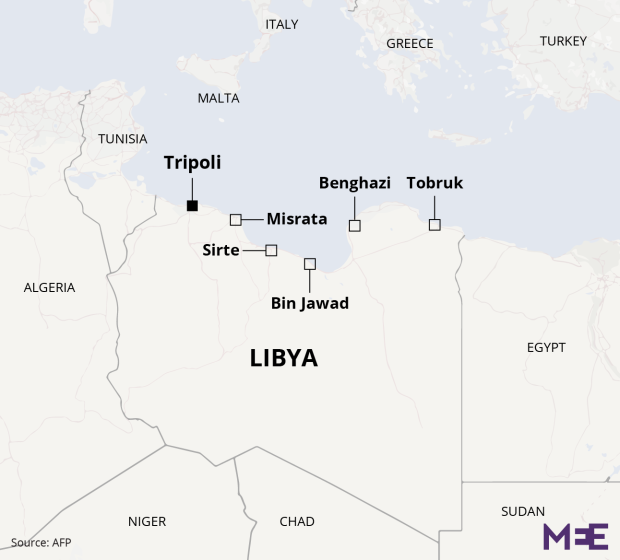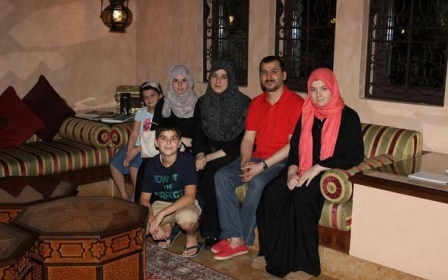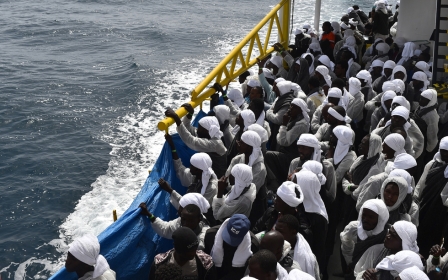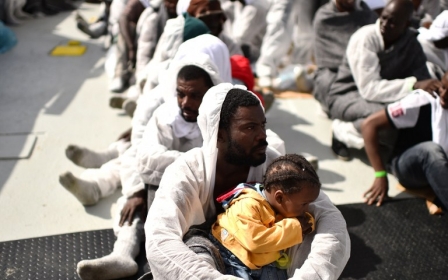Libya unity government makes anti-IS advances as French pen $500m oil deal
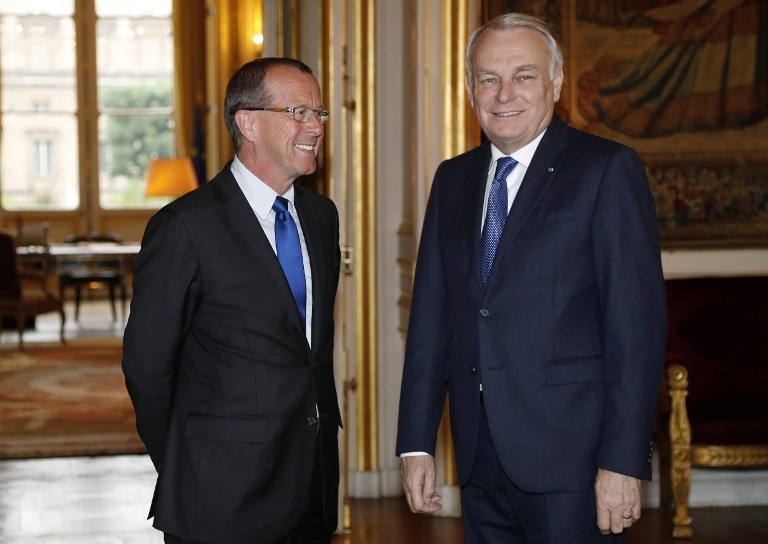
Fighters allied with Libya's UN-backed unity government have captured a coastal town from the Islamic State (IS) group in an advance towards its bastion Sirte, a spokesman said on Tuesday.
The Petroleum Facilities Guard overran Bin Jawad, some 150km east from Sirte, as they thrust westwards along the Mediterranean coast from their base in Libya's eastern oil ports, the force's spokesman said.
Five people were killed and 18 wounded in Monday's fighting, sector commander Colonel Bashir Buthefira said.
The advance continued on Tuesday and was nearing the IS-held town of Nofiliya, some 130km east of Sirte, best known as the birthplace of former leader Muammar Gaddafi who was overthrown by a NATO-backed uprising in 2011.
The UN, however, has continued to urge all the country's armed groups to unite against IS which Italy recently estimated could have some 5,000 armed militants on the ground in the north African country.
"The fight against Daesh, which is the number one enemy, must be a Libyan fight and a united fight," UN’s special envoy to Libya, Martin Kobler, said on Tuesday using an Arabic acronym for IS, after meeting French Foreign Minister Jean-Marc Ayrault in Paris.
Ayrault also went on to call for rival administrations to patch up their differences and "unite their efforts" into a single national army that "must be put in place," although he was quick to stress that this looked prospect "a long way off".
Two rival parliaments – one in Tripoli and the other in the eastern city of Tobruk – have been vying for power since 2014, with the ensuring power vacuum blamed for IS’s quick rise in the oil-rich country.
While a UN unity deal was penned last year and some members of the unity government have been able to come to Tripoli in recent months, divisions remain and not all members of the two rival bodies have endorsed the UN-backed Government of National Unity.Controversial General Khalifa Haftar, who has been allied with the Tobruk-based authorities, also continues to command the support of several militias and parts of the national army that have thus far resisted the new Tripoli administration.
Western governments have hopes that a unified government will be better placed to take on IS and tackle the migration crisis which has seen more than 45,000 people cross the Mediterranean to Europe this year.
$500m oil deal
However, with the economy devastated by years of strife, there is broad recognition that more will have to be done to financially support any new authorities.
French firm Technip on Tuesday signed one of the biggest deals since the unity government arrived in Tripoli in late March, penning a preliminary contract worth more than $500m to rebuild a major oil drilling platform off the coast of Libya, officials said.
Technip signed the letter of intention in Paris with Mellitah Oil and Gas, a joint venture between Libya's National Oil Corporation and Italy's Eni.
The drilling platform lies in the offshore Bahr Essalam oil field, 100km from the capital Tripoli.
"The project demonstrates the desire of French companies to contribute to the petroleum sector, the backbone of the Libyan economy," France's foreign ministry said in a statement.
Libya has the largest oil reserves in Africa, estimated at 48 billion barrels, and rebuilding the energy sector is a top priority for the new UN-backed unity government.
Since the 2011 civil war that brought down Gaddafi after decades in power, production has fallen from around 1.5 million barrels per day to 300,000.
The announcement comes as oil prices continued their upward trajectory to around $50 a barrel, up from lows of below $30 earlier this year.
Middle East Eye propose une couverture et une analyse indépendantes et incomparables du Moyen-Orient, de l’Afrique du Nord et d’autres régions du monde. Pour en savoir plus sur la reprise de ce contenu et les frais qui s’appliquent, veuillez remplir ce formulaire [en anglais]. Pour en savoir plus sur MEE, cliquez ici [en anglais].


